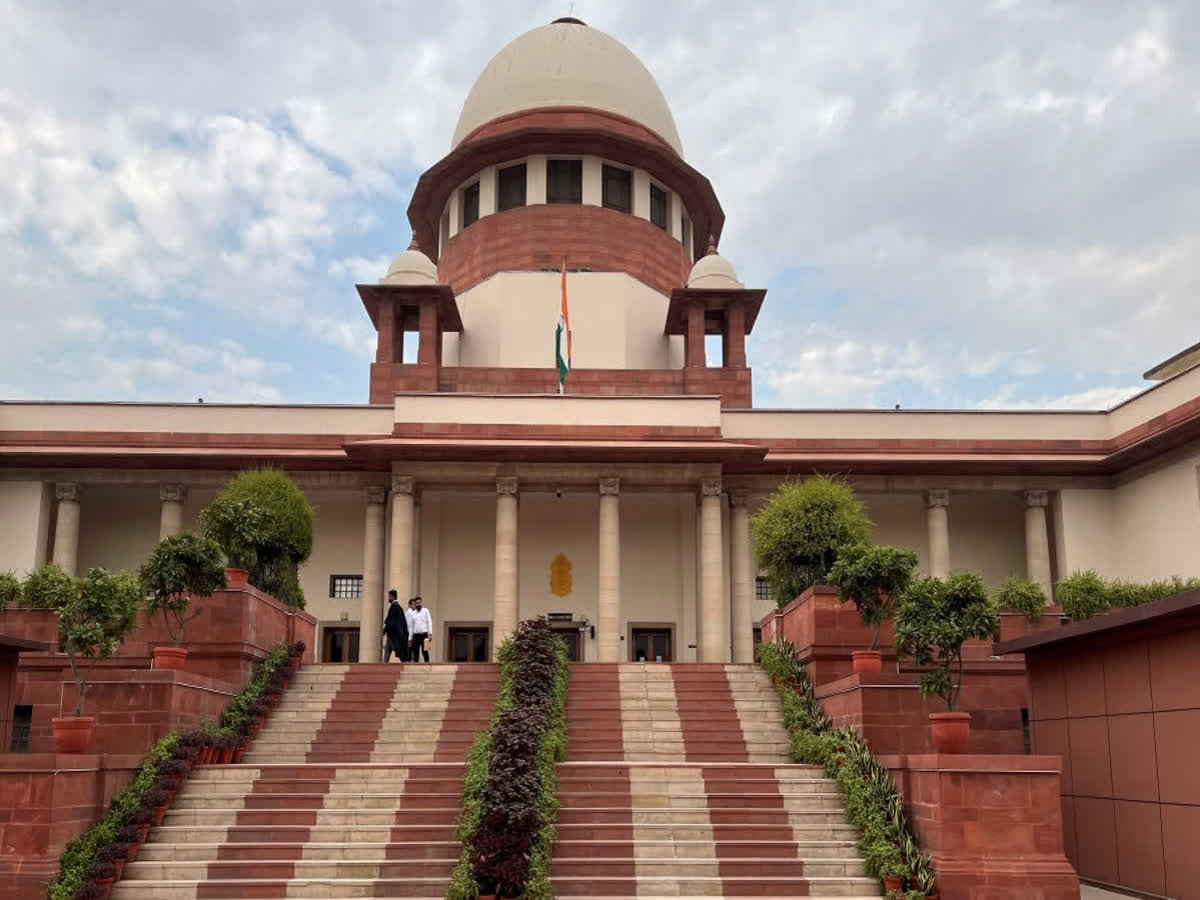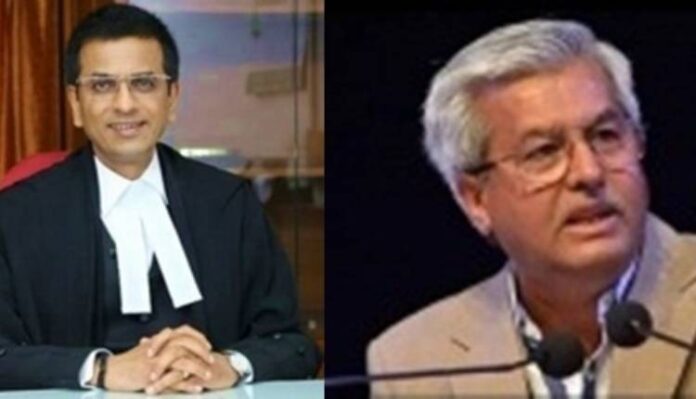In a sharp critique of India’s Chief Justice (CJI) D.Y. Chandrachud, senior advocate Dushyant Dave accused the CJI of misusing his authority and damaging the integrity of the Supreme Court, a role entrusted with the highest standards of justice in the country. Dave expressed deep concern over Chandrachud’s approach to his position, calling his public statements and actions “irresponsible” and “shocking”.
This criticism is centered around Chandrachud’s revelation that he had sought divine intervention to resolve the sensitive Babri Masjid-Ram Janmabhoomi dispute. According to Dave, this kind of statement indicates “delusions of grandeur” and reflects poorly on the office of the Chief Justice, which, by design, upholds secular and rational principles. “I have no doubt he’s suffering from delusions of grandeur,” Dave commented in a bold assertion that has put Chandrachud’s leadership under scrutiny.
Misuse of Power in Handling Supreme Court Cases BY CJI
In addition to his concerns about Chandrachud’s public statements, Dave also penned an open letter to the CJI, raising the alarm over what he describes as the improper and arbitrary reshuffling of high-stakes cases between Supreme Court benches. Dave’s letter sheds light on an apparent trend where sensitive cases, originally listed before specific benches, were suddenly reassigned without following established rules, customs, or the existing judicial protocol. “As master of the roster, you alone have the prerogative to constitute a Bench and allocate cases to the Benches so constituted,” Dave wrote. But he questioned whether the CJI’s handling of this power had remained within ethical boundaries, given the mounting complaints and noticeable pattern of “pick and choose” allocations.
Dave highlighted specific instances where cases that had already been assigned to one judge were moved to another, despite the original bench being available. This, he argued, raises significant concerns about transparency and fairness, especially as these cases often deal with human rights, freedom of speech, democracy, and the functioning of key statutory and constitutional institutions. Although Dave refrained from naming specific cases—many of which are still under consideration—he asserted that these reallocations contribute to a growing sense of distrust within the legal community and among the public at large.
Systemic Issues: Delays and Arbitrary Case Transfers
Beyond Dave’s critique of Chandrachud’s personal approach, the letter underscores a broader problem: the apparent misuse of authority and the delayed justice for many sensitive cases that impact citizens’ lives. The recurring delay in critical rulings, combined with case reallocations that defy conventional judicial procedures, paints a troubling picture of the country’s top court.
Dave’s concerns are not isolated. Several other members of the legal fraternity have echoed similar frustrations, suggesting that these issues have led to a decline in public confidence in the judiciary. With certain cases affecting democratic rights and public freedoms being routinely delayed or passed between benches, the judiciary’s role as an impartial upholder of justice has come under severe question. In an era where the judiciary’s credibility is crucial to uphold democratic principles, such actions send a mixed message about the Supreme Court’s ability to act as an independent and just institution.
A Missed Opportunity for Dialogue
Dave’s open letter also notes a concerning lack of communication within the judicial system. Attempts to engage with CJI Chandrachud, either directly or through formal appointments, have reportedly been unsuccessful. According to Dave, he and other concerned colleagues reached out to the CJI through multiple channels, including formal emails to the court’s Registrar, to address the ongoing concerns and suspicions raised by these seemingly arbitrary case assignments. Despite these efforts, no responses were forthcoming, signaling an unsettling level of detachment from the concerns of senior legal practitioners and the judiciary’s broader community.

The Erosion of Judicial Integrity and What It Means for India
Dave’s critique, ultimately, brings to light a core concern regarding the current state of India’s judiciary: the erosion of public trust and integrity due to delays, lack of transparency, and what he describes as the misuse of power by the CJI. This has raised uncomfortable questions about Chandrachud’s leadership. While the CJI is empowered with the “master of roster” authority, Dave insists that this should not translate into unchecked power. This role, he argues, must be exercised responsibly, with the guiding principle being the fair and timely dispensation of justice.
Chandrachud’s tenure, marked by both landmark decisions and criticism, has intensified debate about how much power the CJI should wield in a democratic nation where checks and balances are essential. According to Dave, the position’s current authority, without clear accountability, has led to an unprecedented ability to control the direction and timing of high-profile cases, and, in effect, the course of justice itself.
In his letter, Dave poignantly reflects on how the CJI’s handling of sensitive cases is impacting public perception, further straining an already overburdened judicial system. If the judiciary, which serves as the foundation of justice, cannot maintain public confidence due to perceived internal manipulation, then the very idea of justice stands compromised.
Looking Ahead: Calls for Reform and Greater Transparency
The letter and interview have stirred debate in legal and public circles about the reforms needed within the judicial system to ensure fair and transparent handling of cases. Dave’s call for reform resonates with those who believe the judiciary must uphold the principles of democracy and equality to truly serve the nation.
The Supreme Court is an institution that holds the nation’s trust and embodies hope for justice. Dave’s sharp critique of the CJI, though controversial, brings forth critical reflections on how justice is currently being administered at the highest level. His statements serve as a clarion call to restore integrity and transparency within India’s judiciary, ensuring that it fulfills its duty to the nation and its citizens.
In a climate of increasing judicial scrutiny and public awareness, Dave’s appeal for accountability may well serve as a wake-up call for those in power to reform processes that affect millions of lives.

